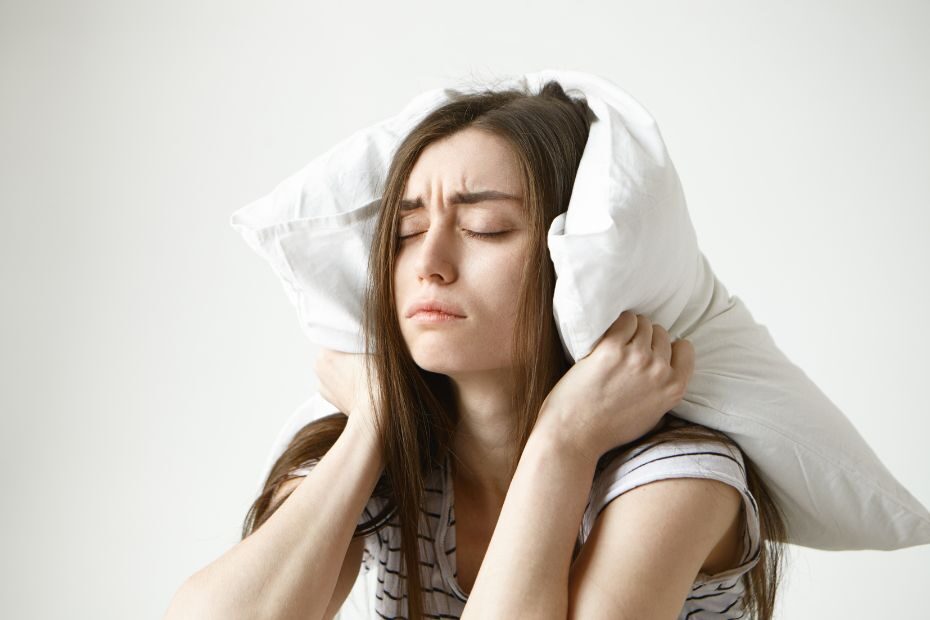Sleeping disorders have been seeing an increasing trend in the past few decades. Some disorders are related to lifestyle choices, and others are serious health diseases. Awareness about sleeping disorders can help you get checked up at the right time and get appropriate treatment.
Sleep disorders like restless leg syndrome, insomnia, and sleep apnea can cause severe effects on daily life, such as daytime sleepiness, decreased cognitive function, mood disturbances, and fatigue.
Why do sleep disorders happen?
Sleep disorders are a multifaceted problem. They can be caused by causes such as:
- Genetics
- Lifestyle
- Certain underlying medical conditions.
If your sleep quality has declined or you are facing problems falling asleep, consult a general physician so that proper evaluation of the condition is possible and treatment can start.
What are the Signs and Symptoms of Sleep disorders?
Sleeping disorders can be of various types, and their symptoms can vary accordingly. Some of the signs and symptoms are as follows:
- Difficulty falling asleep.
- Disturbed sleep.
- Daytime sleepiness.
- Sleepwalking or sleep talking.
- Headaches in the Morning.
- Pain or discomfort in the legs.
- Loud snoring or difficulty sleeping.
- Fatigue.
- Falling asleep suddenly in between tasks.
Any of the above symptoms can indicate a sleep disorder that needs medical consultation with a physician or a sleep specialist.
What are the types of sleep disorders?
A variety of sleep disorders can afflict a person:
- Insomnia: wherein the person may have a problem staying asleep or falling asleep or a decrease in the duration of sleep
- Sleep apnea: It means the person may wake up gasping to the cessation of normal breathing because of some obstruction.
- Narcolepsy: In this disease, a person may fall asleep at any odd moment or in between tasks
- Restless Leg Syndrome: as the name suggests, the person keeps shaking their leg to relieve a persisting feeling of restlessness.
- Jet lag or shift work can disrupt the sleeping cycle and make it difficult to sleep at the desired time for the desired duration.
- Sleepwalking or Sleep Talking: A person will talk or walk while in a state of sleep and have no memory of the episode on waking up.
- Night Terrors: The person may usually wake up in fear and screaming because of an authentic, seemingly scary experience.
- Bruxism is grinding teeth and clenching the jaw while sleeping.
What are the side effects of sleeping disorders?
Sleep is a time of healing, repair, and recovery of the body. It is also a time for the building of memories and the replenishment of neurotransmitters. Any interference with the process of sleeping leads to disturbances in a person’s physical, mental, and emotional well-being. Some of the common side effects of sleeping disorders are:
- Fatigue: one may not have the energy to carry on with day-to-day activities and feel sleepy during the day, called daytime somnolence.
- Mood changes: sleep disturbances can lead to mood changes like anxiety, and depression, and mood swings are likely.
- Lack of sleep can interfere with cognitive function and concentration and lead to poor academic performance.
- Lack of sleep can affect motor coordination; therefore, the person may be more prone to accidents while operating vehicles or heavy machinery.
- Increased risk of chronic diseases such as diabetes, hypertension, and heart disease increases.
- Weight gain can happen because of the disruption in hormonal balance, leading to increased appetite and slower metabolism, all leading to weight gain.
- A weak immune system is an outcome of chronic sleep deprivation, thus leading to increased chances of infection and falling sick.
These severe side effects can interfere with the quality of your life. Therefore, seeking help and medical treatment to handle your sleep disorders can reduce your risk of these problems.
Treatment for Sleeping Disorders:
The treatment for sleeping disorders depends on the particular cause of the sleeping problem and is treated as such. A holistic approach to sleeping disorders is a better goal as it needs to be approached from aspects of physical, mental, and emotional well-being. Some of the treatments are as follows:
- Medication: mild sedative medications for insomnia, if used over a regular period, can help set a regular sleep pattern and improve sleep quality. Other medicines like hypnotics and antidepressants may also be used to combat sleeping disorders.
- Lifestyle changes: Trying meditation, relaxation techniques, regular exercise, avoiding caffeine, and setting aside a fixed time for sleep and waking up can help you take steps towards a better sleeping schedule.
- Cognitive Behaviour Therapy: reframing thoughts regarding sleep and waking up can help the person change their outlook towards their sleep disorder and create space for healing or accepting help.
- Light Therapy: Exposing the body to bright lights during the day and gradually reducing the intensity of the same by evening can help set the circadian rhythm in the body.
- Surgery: surgery in case of conditions like obstructive sleep apnea may be necessary to reduce the risk of attacks of breathlessness at night and improve better quality of sleep.
- CPAP Machine: for inoperable cases of severe sleep apnea, a continuous positive airway pressure machine may be attached for breathing during sleep to keep the airway patent at night.
Above are some of the treatments listed for the specific conditions. The best guide towards managing your sleeping disorder will be a sleep specialist who understands your specific case and honors your experiences while adjusting treatment as needed. Consult some of the best sleep specialists in India with Medintu. Diseases are dynamic, and therefore the treatment should be too.

